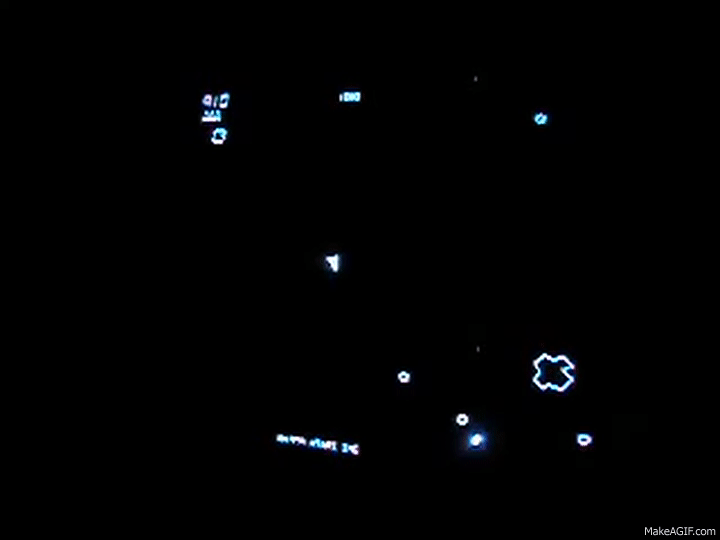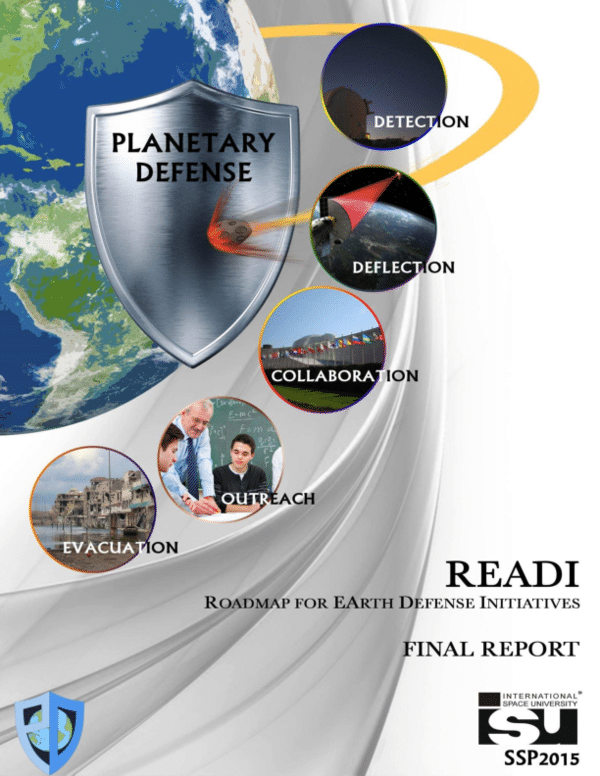Even the official website for Donald Trump’s project Space Force looks like a parody from Starship Troopers. So the execution itself has generated plenty of eye rolls, including an insignia that looks lifted straight from the Star Trek Academy.
I mean, really? Are we expected to honestly take the Space Force seriously? Well, for the sake of this article, let’s do that very thing. We’re going to take a serious look at what a planetary defense system might entail.
Here’s an excerpt straight from the official Space Force website:
“The USSF is a military service that organizes, trains, and equips space forces in order to protect U.S. and allied interests in space and to provide space capabilities to the joint force. USSF responsibilities include developing military space professionals, acquiring military space systems, maturing the military doctrine for space power, and organizing space forces to present to our Combatant Commands.”
Let’s focus on this line: “a military service that organizes, trains, and equips space forces in order to protect U.S. and allied interests in space.” But while the Trump administration is well known for its distain toward and aversion of academics and experts, let’s take our cues from READI, the Planetary Defense Team project that was a collaboration between NASA and 34 experts from nearly that many countries, and look at what this might mean through that lens.
What is READI?
The READI (Roadmap for EArth Defense Initiative) final report suggested a proper planetary defense would focus on 5 key areas of competency:
- Detection,
- Deflection,
- Collaboration,
- Outreach, and
- Evacuation.
Of course, when the Space Force says its mission is to protect U.S. interests in space, they may not even mean defense. This is America, after all, so the interests they speak of may very well be financial interests, meaning it’s a first step toward space mining. But let’s assume they do mean defense and dig into what the READI report has to say in regards to that.
Says the report, “As a progressive technology wielding species, space and other allied advanced technologies allow us to ameliorate the effects of some of these large scale calamities. We feel we are at the threshold of mastering the tools that will allow us to thwart asteroid and cometary impacts that play a critical role in shaping our planet and in the evolution of species.”
It continues, “Transcending space situational awareness that allows us to monitor space weather routinely, an expanded solar system situational awareness is making us a more refined species, sensitive to changes more distant, where denizens of deep space like asteroids and comets lurk.”
So, this would suggest that a collection of the world’s experts believes that “space weather” and a potential asteroid impact are the most salient threats we face. I would’ve gone with space pirates or a Skrull invasion, but I’ll trust the experts here.
So, that’s “detection,” let’s move on to the second key area, “deflection.” READI focused on innovative but feasible technical ideas inspired by existing concepts.

What did they come up with? Well, nukes, for one. It turns out Bruce Willis really was on to something when it came to rescuing Earth from an approaching space object. READI’s backup plan was lasers, which is something I think we all can get behind.
Interestingly, READI also suggested an investment in “ground-based solutions that would act as a last line of defense.” To that end, my mind went straight to Tony Stark’s suggestion that the Earth needs a suit of armor, so let’s just say that READI agrees with me.
The second place my mind went was to SWORD from Marvel Comics. If you don’t know, SWORD is an agency wholly unlike our real-life Space Force that focuses on detecting alien threats from space. And a new SWORD title will be launching soon, so maybe we can get some good ideas from that.
Of course, any investment of a planetary scale involves “collaboration” and “outreach,” numbers 3 and 4 on READI’s list of key competencies. This may be a problem. They suggested an “advisory body” that sounds a bit like the Sokovia Accords and we all know Captain America will punch you over those, so they are pretty much out.
More worrisome, I couldn’t find anywhere on Space Force’s website that suggested a willingness to play well with others, nor to establish a broad coalition or intent toward international collaboration. Translation: We’re screwed.
Except, maybe not! NASA has established a precedent toward collaboration, namely via the International Space Station. READI’s last key competency is “evacuation,” so if us nerds need to get off Earth in a hurry, it would behoove us to at least do a head count toward how many of us can fit aboard the International Space Station.

But I’m getting ahead of myself. It turns out that most impacts aren’t thought to be planet-busters, they’ll be more localized in nature. To that end, READI suggests evacuation will be similar to the existing strategy for an earthquake or hurricane. And the best scenario for saving as many citizens as possible is to start evacuation days prior to the impact.
Alas, we can’t even be trusted to wear masks as a protective measure that minimizes the current extinction event we find ourselves in. So I’m not sure we’ll be able to coordinate a response to a comet.
I encourage you to read the READI report for yourself. My snarkiness and silliness aside, it’s an interesting document. And it’s a document that sparks the joy and wonder I remember as a little kid watching Space Shuttle launches. We might be putting our best foot forward now, but documents like the READI report make me hopeful that one day our species will indeed fully take to the stars.

